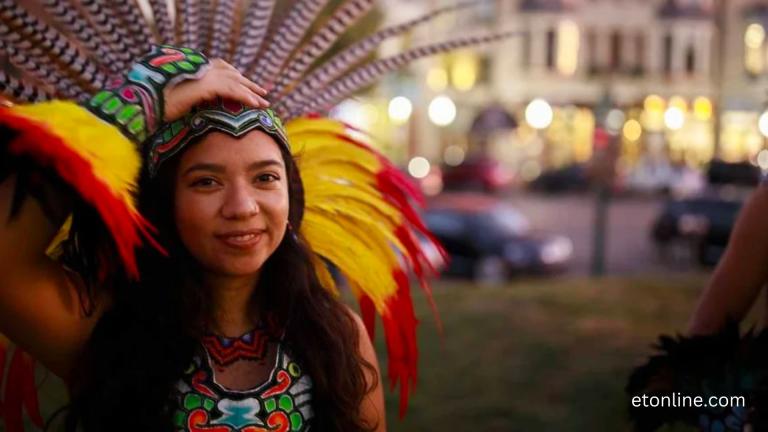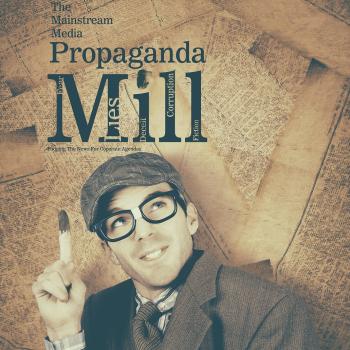
‘YOU CANNOT DISCOVER lands already inhabited.’[1] This is the opening line in Mark Charles and Soong-Chan Rah’s excellent work, Unsettling Truths: The Ongoing, Dehumanizing Legacy of the Doctrine of Discovery.
NB: I recently interviewed Mark Charles for the determinetruth podcast. You can find the episode here.
Happy “Indigenous People’s Day.” I say this to the few surviving indigenous people.
At the same time, this holiday is not one that I celebrate with pomp and fanfare, but with remorse and grief.
I am surprised and even grieved by the fact that some Christians take offense at the celebration of Indigenous Peoples Day. They claim that we should not celebrate Indigenous People’s Day because they were warring, primitive people.
NB: this is one of the arguments in an article in the Daily Citizen: a publication of Focus on the Family: see below for more details
My point here is two-fold:
First, regardless of the character and conduct of the indigenous people of this land, they are people made in God’s image and thereby beings of value who deserve our love, respect, and recognition.
Secondly, recognizing Indigenous Peoples Day is to reckon with our own actions and the actions of our American ancestors.
Where are the Indigenous people?
There is one significant problem with Indigenous People’s Day: there are very few indigenous people left to celebrate it.
For me, celebrating Indigenous People’s Day is not only to affirm the human dignity of the indigenous people but also to acknowledge one of the many scars in our history.
Why I cannot celebrate Columbus Day
Of course, today is also Columbus Day, which first became an American holiday in 1937.
Unfortunately, I cannot celebrate Columbus day. It has nothing to do with the supposed blessings that the Europeans brought to this land. Instead, it has to do with the enslavement, death, and destruction that accompanied the colonial settler.
The Great Falls Tribune reported that “When asked how the state’s recognition of Columbus Day makes them feel, Indigenous people answered: ‘sad,’ ‘nauseated,’ ‘disgusted,’ ‘disrespected,’ ‘hurt,’ ‘angry,’ ‘unwanted,’ ‘insulted’ and ‘embarrassed.’”
This is why I cannot celebrate Columbus Day.
Sadly, some object to my convictions.
In response, I would note that the resultant genocide of the indigenous peoples of North America is a matter of fact.
Why some think we should celebrate Columbus Day
I had to search a a little to find an answer to my google search, “why should people celebrate Columbus Day.”
Finally, I came upon a site that proclaimed, “But in reality, Christopher Columbus is an American hero, and he should remain as such. Here are five reasons we should still celebrate Columbus Day.”[2] The article was posted on the Daily Citizen, a product of Focus on the Family.
The title of the Daily Citizen article was, “Why the left hates Christopher Columbus.” In other words, for them this is a political issue.
The problem with politicizing such an issue is that we draw lines in the sand. Labeling this as a political issue often causes us to overlook the moral issues. Sadly, the Focus on the Family article does not dismiss the moral issues, they instead attempt to defend Columbus against the moral accusations and the claim that the indigenous peoples were barbaric and genocidal.
The Focus on the Family article suggests that Columbus should be celebrated because:
- Columbus personified the American Spirit
- Columbus undertook adventure for God and Country
- If Columbus is off limits, then so are indigenous peoples
- Columbus is innocent of most of the charges against him
- Historical figures should be viewed in light of their greatest achievements, not their worst mistakes[3]
Someone is being inconsistent and it ain’t me
You might say that I am being inconsistent. After all, I am celebrating a day to remember the indigenous peoples while not considering their moral fiber, yet, I am not celebrating Columbus Day because of the moral fiber of the European explorers and the colonial settlers.
My response: it is not I who is inconsistent but those who might contend with me. Allow me to explain.
There is no question that all persons are both made in God’s image and are beings of value and are worthy of our love and respect. This applies to the indigenous peoples and to Columbus and the explorers. At the same time, I would also affirm that all persons are sinners and all nations and tribes are guilty of oftentimes heinous acts.
So why then am I pointing to the sins of the Europeans and not the sins of the indigenous peoples?
Simple: recognizing the indigenous peoples of this land and celebrating Indigenous People’s Day is both affirming the indigenous peoples as those who are made in God’s image and at the same time acknowledging the heinous actions we committed against them.
Not recognizing Columbus day has nothing to do with his human dignity but with his actions. The whole reason for celebrating Columbus Day would be to affirm his actions in “discovering the Americas”—which he didn’t really do but that is beside the point.
The distinction between the two holidays in other words is that Columbus Day is meant to honor the person of Columbus and his actions. Whereas, Indigenous Peoples Day is to meant to honor the persons and recognize our actions against them.
This means that one holiday is celebrating the deeds of the individual and the other is recognizing the deeds done against them.
Therefore, the character and deeds of Columbus and the Europeans are relevant topics as part of the consideration of whether or not we should celebrate a holiday in honor of him. The character and deeds of the indigenous peoples have nothing to do with a holiday to honor and remember them.
By comparison: no one, or at least no rational human being, would dare suggest that we shouldn’t remember the holocaust because the massacred Jewish people were sinners!
In this sense, Indigenous Peoples Day is no different than Holocaust Remembrance Day.
The claim in the Focus on the Family post that, “If Columbus is off limits, then so are indigenous peoples,” simply does not follow.
Columbus is “off limits” because he brought genocide and slavery to the peoples of the Americas.
NB: the Focus on the Family article does not appear to deny that Columbus was guilty. Their fourth point, “Columbus is innocent of most of the charges against him,” affirms that he is guilty of some of the charges against him.
NB: my point here is not to debate the morality, or even the Christianity, of Columbus. My point here is to note the actions of Columbus and the European colonizers. They brought enslaved many of the peoples of this land and for the rest, they brought devastation, destruction, and genocide.
NB: The fifth point in the Focus on the Family article (“historical figures should be viewed in light of their greatest achievements, not their worst mistakes”) is seriously egregious. Would they say them say thing about Hitler?
To say that the indigenous peoples are off limits is to somehow say that we should not recognize the horrific and barbaric actions of the colonizers because the indigenous people were also barbaric people.
Conclusion
This is why I celebrate, with much lamentation and grief, Indigenous Peoples Day and why I cannot celebrate Columbus Day.
NB: to those who believe that by acknowledging the sins of the European, colonial settlers we are somehow undermining Christianity, I would simply note that by acknowledging such we are not undermining Christianity but affirming it. After all, one of the cardinal doctrines of Christianity is that we are all sinners. To acknowledge the sins of our past is to act Christianly. To deny our sins of the past, to overlook them, or to justify them, is to act unchristianly and to make a mockery of the Gospel and our witness.
Remember that our friends at Hearts & Minds, an independent bookstore in central Pennsylvania, have offered to give our listeners a 20% off on nearly anything ordered. Just mention Determinetruth and they will get back to you promptly with personalized service like you rarely see these days.
Also,
My goal is to keep these posts free of charge. I do not intend to ever hide them behind a paywall. I can only do this if those of you who have been blessed by them and can afford to give ($5, $10, $25, or more/month) do so. You can give a tax-deductible contribution by following this link.
Please share this post and let others know about determinetruth.
If you wish to view this blog on your smartphone through the Determinetruth app simply download the “tithe.ly church” app on your smartphone and insert “determinetruth” as the church name you wish to follow. Once it is loaded, simply click on the “blog” icon and it will automatically load.
If you would like to have Rob speak at your church or organization in person or via zoom, please let us know by filling out the contact info on the Contact me tab on this site.
[1] Charles, Mark; Rah, Soong-Chan. Unsettling Truths (p. 13). InterVarsity Press. Kindle Edition.
[2] https://dailycitizen.focusonthefamily.com/the-left-hates-christopher-columbus-here-are-five-reasons-why-we-should-still-celebrate-columbus-day/
[3] See https://dailycitizen.focusonthefamily.com/the-left-hates-christopher-columbus-here-are-five-reasons-why-we-should-still-celebrate-columbus-day/












